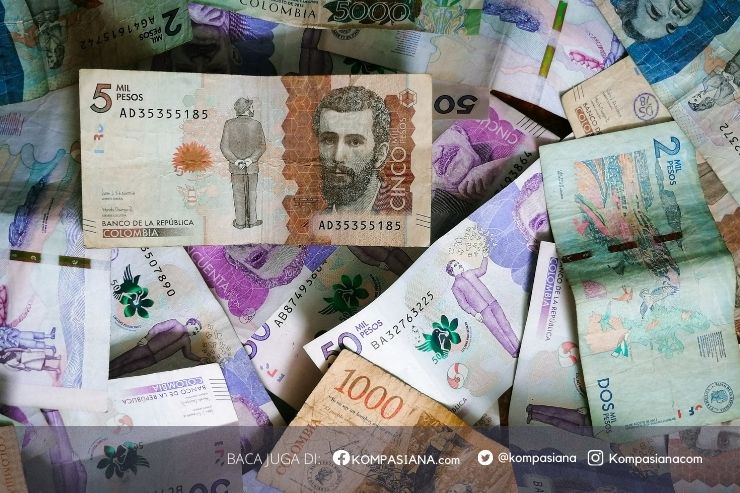“Sadly, the American dream is dead. But if I get elected as the president, I will bring it back, bigger and better than ever.”, said Donald Trump in his announcement of his participation to be one of president candidate from republican party in USA’s president election 2016. Ever since before the nominees from both Republican and Democratic parties are elected, there are other well-known candidates such as Hillary Clinton, Ted Cruz, and Bernie Sanders. Yet the world seems to pay more attention to Donald Trump. This is due to his controversial statement regarding world’s issues and the fact that he has “no experience” in the field of politics.
Donald Trump is one step closer on being president by winning enough primary republican party’s delegates votes, gaining 1447 votes already[1]. He defeated 16 other republican contenders, and now is waiting for Republicans to finalise their nomination at a convention in July. Yet as of June 15th 2016, according to the Economist Intelligence Unit (EIU), the global economy will be distrupted if Donald Trump is elected as the president. This risk is rated 16 using a scale of one to 25[2], more harmful than the risk of EU which begins to fracture because of external and internal pressures (rated 15 out of 25) and the risk of “Grexit” which is followed by euro zone break-up (rated 15 out of 25). Hereby listed the following reasons;
Donald Trump has a perspective that illegal immigrants, who mostly came from central America, are dangerous for “bringing crime” and taking away American citizens’ jobs. "I will build a great, great wall on our southern border, and I will make Mexico pay for that wall. Mark my words." Said Donald Trump on his solution towards illegal immigration problem, from Mexican precisely. The “wall” he refers to is the one he will build to strengthen border between USA and Mexico, which will cost approximately $25 billion[3]. In addition to prove how he is willing to banish undocumented residents, he also promised that he will deport approximately 11.3 million illegal immigrants[4].
Then, will it be beneficial to the world ‘s economy and the USA’s economy itself? The answer is no. Although there is negative effect of illegal immigration such as lowered number of jobs for U.S. labor, the other effects of illegal immigration are surprisingly positive[5]. First of all, illegal immigrants are mostly unskilled workers. Therefore, illegal immigrants do not compete with skilled labors whose majority are native american, they complement them instead. As economist Adam Smith argued, economies “work best when workers become specialized and divide up tasks among themselves”.
Up until 2012, the number of illegal immigrant workforce reached approximately 8.5 million people[6], which is 75.22% of all illegal immigrant, and 5.1% of all workforce in the US. From the chart below, we can observe that a number of industries, such as agriculture, forestry, fishing and hunting are heavily depended on “low-paid” illegal immigrant labor. Responding to this, John McLaren, professor of economics at the University of Virginia, said that “There would be an abrupt in farm income and a sharp rise in food prices” if those illegal immigrant labors are deported. And that would only be an example of many of the impact of deporting illegal immigrant labor.
The lower number of labors, which is one of industries’ factor of production, will caused lower production. By deporting illegal immigrants, the number of workers will reduced by 5.1% and therefore The US economy will be harmed since its Gross Domestic Product will also reduced by $1.6 trillion[7]. Also, deporting 11.3 million illegal immigrants will cost the government a high amount of money since the range of cost to deport one person is $8,318 to $23,000 due to its complicated process[8].
Since The US is a really powerful country with strong buying power and currency used in most international transactions, any harm occurs to the US economy will affect the world’s economy as well. For example, the lower number of labors in US which lowered number of production will lead to lower national income. Countries exporting goods to US will have a reduction in number of products demanded and therefore their national income will also reduced.
Tax Reform
Donald trump’s tax plan consists of four goals which are establishing tax relief for middle class Americans, simplifying the tax code, growing the American economy, and to doesn’t add US’ debt and deficit[9]. A tax research group calculate that Trump’s plan would cut taxes by $11.98 trillion over a decade. As we know, when the government reduce taxes, it will lead people to consume more, companies’ ability to maintain its business will also increase. Investment would flow from both US and international world. Yet, there is a possibility that Donald Trump’s tax plan would not be beneficial. What are the reasons behind this?
Donald Trump’s tax plan which is lowering tax rates is not simultaneously followed by a plan to increase the amount of the economy subject to taxation. The tax revenues will decrease by $10.4 trillion and slowly cause the increase in deficit and budget debt[10]. The economy would have to grow at an 8% annual rate for 10 years to make up Donald Trump’s plan’s lost revenue, and such growth rate has never been seen in the US since 1950[11]. Therefore, there would be a risk that the lost revenue would not be made up. This tax reform will also increase US wealth gap. People making $3.7 million per year –0.1% of the population—would get more tax relief than the bottom 60% of taxpayer combined. As we know, increased economic inequality will higher the risk of financial crisis, higher debt, and unstable economic growth.
International Relation
Will Donald Trump be a president with nice attitude and good relation with the international world? The answer is strongly no. This viewpoint is based on Donald Trump’s campaigns, in most of which he stated disapproval towards international trade, and the fact that not only once did he say offensive statement about other countries. Aside of calling NAFTA as a disaster, Donald Trump also referred to China as a “currency manipulator” and said that China, Mexico, and other countries are “killing us (United States of America)” in terms of trade agreement. As a solution to that “trade agreement problems”, Donald Trump is willing to put high tariffs on product manufactured abroad, which produced by both U.S. and foreign company.
This so called solution, however, would cause a trade war between U.S. and countries that would be damaged by Donald Trump’s policy. If those countries retaliate by also putting high tariffs, U.S. exports will be more expensive and it will affect export-supporting industries, leading to about 7 million fewer jobs in the U.S.[12] Even if those countries don’t retaliate, U.S. economy would still be harmed since imported goods would be more expensive and therefore reduce the purchasing power of the people of U.S. In addition, diplomats of “powerful” countries including Japan, Germany, and United Kingdom expressed their concern about the possibility of Trump being the president. According to them, The United States in general, including its economic sector, will be worse under the leadership of Trump if he is elected[13].
What To Do, Then
Although the possibility of Donald Trump to defeat his Democratic contender is still uncertain, the U.S. and all countries that will possibly be affected by this forecast should be aware of the risks. For U.S., if Donald Trump is elected as the president, the government should reconsider the policies Donald Trump had proposed in his campaign. For the illegal immigration problem, instead of strengthening borders and deporting “illegal aliens”, the government should consider implementing better job program and improving visa work program so that it will reduce number of non-U.S. workers living illegally, without reducing the number of workers in general.
For the tax reform problem, the government should consider reducing the tax rates and increasing the amount of economy subject to taxation simultaneously, and also reforming a more suitable tax rates for all levels of U.S. citizen’s economy. For international relation, instead of putting high tariffs (in example 45% for China and 35% for Mexico), the government should consider imposing Scaled Tariffs, which rate is proportional to the size of each country’s trade surplus with the U.S.. Therefore, the possibility of trade war could be avoided. As for countries that will be affected by this forecast, each should slowly reduce its dependency on international trade sectors by progressively increasing taxes on import goods, maintaining sustainable development which will lead to maximized national economic strength, and intensifying domestic production along with developing the quality of its human resources.
By: Sasha Namira |Ilmu Ekonomi 2015 |Staf Kajian KANOPI 2016
--
References:
[1] http://www.nytimes.com/elections/results
[2] http://www.bbc.com/news/business-35828747
[6] http://www.pewresearch.org
[8] http://fusion.net/story/180775/11-3-million-reasons-why-trump-is-wrong-about-immigration/
[9] https://www.donaldjtrump.com/positions/tax-reform
[11] https://fred.stlouisfed.org/series/A191RL1A225NBEA
Baca konten-konten menarik Kompasiana langsung dari smartphone kamu. Follow channel WhatsApp Kompasiana sekarang di sini: https://whatsapp.com/channel/0029VaYjYaL4Spk7WflFYJ2H







